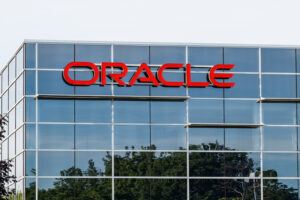In our fast-paced healthcare environment, medical professionals are constantly challenged to balance the demands of providing high-quality patient care and completing administrative tasks such as managing electronic health records (EHR), which is a digital version of a patient s medical history and other health data.
We know that as AI and machine learning capabilities keep getting better, the future of healthcare is data-driven. However, the technologies need data to reach their full potential. Healthcare providers have to input patient data into the system. However, the inefficiencies of completing such tasks often result in poor patient care and healthcare provider burnout.
According to research, physicians spend 44.9% of their time on the EHR, with 20.7% on EHR input alone. Clinician burnout is at an all-time high, and one of the reasons for that is the burden of administrative work. The overburdened healthcare provider is also a risk to patient safety and is one of the causes of workforce shortage in the healthcare industry.
Oracle, a global leader in cloud technology and enterprise software solutions, has unveiled an innovative solution this week to address some of these challenges. The Oracle Clinic Digital Assistant combines GenAI, clinical intelligence, integrated dictation, and multimodal voice tools to minimize the need for manual input into EHR. This has the potential to have a significant positive impact on improving patient care and reducing healthcare provider burnout. Oracle’s Clinic Digital Assistant is now generally available in ambulatory clinics in the U.S.
According to Oracle, the new tool can streamline healthcare workflows, and reduce documentation time by 20-40%. This enables healthcare providers to focus on what matters most – their patients.
Integrated with the Oracle Health Electronic Health Record (EHR), the digital assistant offers conversation-based note generation, clinical automation, and can propose follow-ups directly at the point of care.
The physicians would no longer need to navigate complex drop-down menus or scroll through multiple screens to find and enter patient data. With the Oracle Clinical Digital Assistant, they can immediately access the patient’s medical record through voice commands.
During the appointment, the digital assistant captures data using the healthcare provider’s preferred templates, which are built into the platform. Unlike other solutions, Oracle Clinical Digital Assistant takes only a few minutes to complete note generation for the appointment. In addition, it can propose next-step actions, such as drafting referrals and prescription orders and scheduling follow-up appointments. These features not only help save time through better efficiency but can also improve the accuracy of the EHR data.
Oracle tested the new digital assistant with 13 early adopters, including St. John’s Health, Billings Clinic, Hudson Physicians, T.J. Regional Health, and Covenant Health. The results show that the new tool can save physicians an average of four and a half minutes per patient and 20-40% in documentation time.
According to Patricia Doolin, APRN, T.J. Regional Health, the Oracle tool is saving her “up to 10-12 minutes per patient”. This efficiency allows doctors to spend more quality time with their patients, enhancing overall patient care.
“Oracle Clinical Digital Assistant is the most important EHR technology update that I am going to see in my career. Since the 1990’s, EHRs have turned physicians into keyboard junkies. This will change that,” said James Little, MD, primary care physician, St. John’s Health. “Our physicians who have been using this technology have been able to document their patients’ visits in real-time, allowing them to leave at the end of the day with good, quality notes. Time spent after hours documenting is no longer needed.”
 According to Dr. Ryan McFarland, family medicine practitioner, Hudson Physicians. Oracle’s Clinical Digital Assistant has been a “game-changer” as it allows him to focus on his patients during the appointment and reduce the time he spends on updating notes post-appointment and after-hours.
According to Dr. Ryan McFarland, family medicine practitioner, Hudson Physicians. Oracle’s Clinical Digital Assistant has been a “game-changer” as it allows him to focus on his patients during the appointment and reduce the time he spends on updating notes post-appointment and after-hours.
While the digital assistant captures all the data automatically, the users have complete oversight and control. They can review, modify, and approve notes and next-step actions on their computer or mobile device. The solution also synchronizes the appointment date with the patient’s medical record, however, it does not copy and paste it over it. This ensures valuable data doesn’t get overwritten.
Related Items
How AI Will Impact the Drug Discovery Pipeline
New AI Technique Helps Find Alzheimer’s Drug Targets
#AI/ML/DL #Slider:FrontPage #AIassistant #GenAI #healthcare #Oracle #patient [Source: EnterpriseAI]


